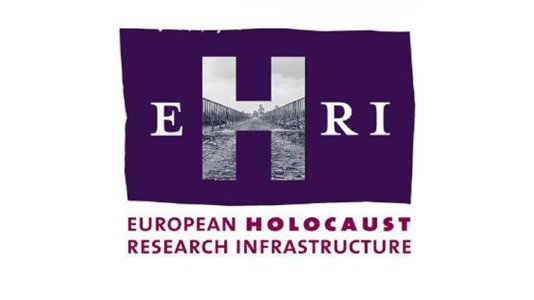European Holocaust Research Infrastructure (EHRI)

The mission of the European Holocaust Research Infrastructure (EHRI) is to support the Holocaust research community by building a digital infrastructure and facilitating human networks. EHRI provides online access to information about dispersed sources relating to the Holocaust through its Online Portal, and tools and methods that enable researchers and archivists to collaboratively work with such sources. Apart from providing an online platform, EHRI also facilitates an extensive network of researchers, archivists and others to increase cohesion and co-ordination among practitioners and to initiate new transnational and collaborative approaches to the study of the Holocaust. EHRI thereby seeks to overcome one of the hallmark challenges of Holocaust research: the wide dispersal of the archival source material across Europe and beyond, and the concomitant fragmentation of Holocaust historiography.
More than twenty organisations – research institutions, libraries, archives, museums and memorial sites – form a core working group, but EHRI equally relies on the support of many other individuals and organisations in the broad fields of Holocaust studies and digital humanities. By bringing together experts from different fields, and by building an innovative digital infrastructure supported by a large community, EHRI is a flagship project that showcases the opportunities for historical research in the digital age.
EHRI continually expands the group of institutions and people associated with the project. Institutions that hold Holocaust-related collections are invited to integrate information about their collections in the EHRI Online Portal, thereby increasing their visibility among the research communities. EHRI also offers individuals opportunities to join its human network through its extensive programme of research, training and education events, including workshops, conferences, fellowships, hackathons, methodological seminars and online courses.
EHRI started its work in October 2010 with initial financial support from the European Union for four years. Thanks to the continued EU support, EHRI keeps on developing. A new ambitious four year programme has been put together that will deepen the project’s existing activities and achievements and explore new avenues of research from 2015 to 2019. EHRI is devoted to building a Holocaust research infrastructure that is sustained by its network and will have a right of existence on its own accord.
Survivors of the Holocaust to testify are dwindling in number and the time will come when we will be without anyone who can speak directly from experience about these critical events. The resources and tools that EHRI is developing will play a vital role in the future of Holocaust research, commemoration and education. We can never replace the survivors, but we can honour and remember them by continuing to improve access to Holocaust sources. EHRI is dedicated to this task.
Between 2015-2019, EHRI will:
- Expand the group of institutions associated with the project, and establish working relations with researchers and institutions in various parts of Europe (especially in Eastern and Southern Europe and regions with limited institutionalization of Holocaust research).
- Improve the EHRI Online Portal in terms of content (e.g. more, richer and better interlinked information about collections from many more institutions) and usability (e.g. improved functionalities and better help provisions).
- Deepen research into Holocaust-related collections and institutions, especially in Eastern and Southern Europe, and continually integrate new findings into the EHRI Portal.
- Investigate innovative approaches to work with digital content in Holocaust research, and develop advanced data analysis methods and tools that facilitate the processing of large amounts of data.
- Offer an enlarged and more flexible fellowship programme that enables researchers and archivists to access the expertise and holdings available at 15 EHRI partner institutions.
- Extend the existing EHRI Online Course in Holocaust Studies and develop an online tutorial for the EHRI portal.
- Develop an online document blog and a platform for scholarly online editions of documents.
- Engage with key user groups to advance the use of international standards and best practices and to receive feedback on EHRI tools and services.
- Organise a varied programme of conferences, methodological seminars and workshops across Europe to reach out to relevant communities, foster international co-operation in Holocaust research, and discuss and further current research trends and questions.